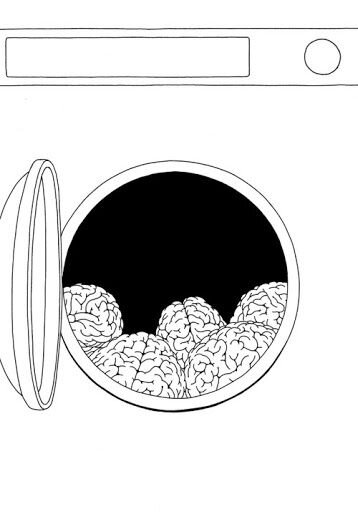How To Build A Resilient Brain
For those facing severe attention scarcity (cough cough COVID-19 has increased your screen time 155% and you JUST can take one more blog post!) this disclaimer is for you: it IS possible to make your brain more resilient (short-attention-spanners…I’d suggest you skip to the TIPS section below)!
Maybe you’re not quite as much of a neuroscience nerd as I am… but I really didn’t care to know anything about brain resilience if there wasn’t a way I could actually use this information to my advantage.
I’ll start by calling this one out…
You know those people who seem to deflect just about EVERY hard thing that’s thrown at them? Those people who can be metaphorically dragged through the MUD and still come out smiling on the other side??
HOW in the HECK are some people able to effortlessly bounce back from unfathomable pain, tremendous suffering and extreme hardship while others are completely derailed by stressful life events?? Yes. I see you everyone who has officially molded into the corner spot on the couch after 14 days in social isolation feeling on the verge of spiraling out of control.
I am with you!!
It all boils down to how your brain handles stress.
Let me back up.
Resilience (*simplified*) is the ability to bounce back from difficult life experiences.
AND resilience is not a trait that you either have or don't have - it can be learned and developed... SO cool right?! Resilience includes behaviors, thoughts and actions that can be learned and developed.
Resilience is a neuroplastic process.
Neuroplasticity is the muscle building part of the brain. It is at work throughout life as connections in the brain are constantly becoming stronger or weaker depending on what is being used. Younger people have very ‘plastic’ brains. As we age, change doesn’t come as easily. The brain loses some of its plasticity and we become more fixed in how we think, learn, and perceive.
… back to how your brain handles stress
In two studies (study 1 & study 2) that tested the effects of prolonged stress on mice, about a third of the mice didn’t develop symptoms associated with low resilience (depression, anxiety, etc.). This was because resilient mice had global gene expression that was vastly different than the stress-susceptible mice… for every 100 genes that changed in the susceptible mice, 300 genes changed in the resilient mice.
More genes expressed = evidence of increased plasticity in the resilient mice
Neuroplasticity is a relatively new concept that has only gained acceptance in the second half of the last century and goes contrary to the traditional belief that our brains stop developing after childhood. We now understand that the brain continues to change its structure by forming and removing connections throughout life.
The beauty of neuroplasticity is that it proves we CAN increase our brain’s resilience. I repeat. YOU ARE NOT DOOMED if you are not currently mr/mrs bounce-back-from-any-adversity!!
—> START HERE for all of you who jumped skipped over everything above. Honestly - who even has time for all the scientific research anyways.
Tips on how to increase your brain's resiliency by intentionally changing your thoughts and behaviors
(+ adaptations for social isolation!)
Make good social connections: support (even virtual) from those who care about you and will listen to you strengthens resilience.
Bonus: assisting others in their time of need can also benefit the helper!
Explore/come to accept that change is a part of living: try and think of the last REALLY hard thing you went through. Didn’t it feel like it would never end? Or that the anxiety pit in your stomach wouldn’t go away? Feels like a distant memory, eh? This too will pass and on the other side, you’ll forget how crippling the prolonged COVID-19 panic felt.
Instead of focusing on tasks that seem unachievable, ask yourself "what's one thing I know I can accomplish today that helps move me where I want to go?” For me today, this was as simple as sitting down for 10 minutes to meditate. It doesn’t have to be a big giant task cross off… just something simple that you KNOW you can achieve.
Nurture a positive self-view: I firmly believe we are all just our 5-year-old selves trapped in ‘adult’ looking bodies… still, desperately craving being nurtured. Here are a few of my favorite affirmations:
I have everything I need right now.
I am capable and strong
I have the power to change myself
I deserve to be loved
I am free to live the life I choose
I accept that I can’t please everyone (still working on this one… it’s a toughie for me)
Take care of yourself: pay attention to the sensations, thoughts and emotions that arise.
The moment you manage to notice sensations, thoughts and emotions, they no longer hold the power of directing your life. Kick them out of the front seat… YOU are in control!
Cultivate an abundance mindset! (stay tuned for a whole blog post dedicated to this)
So, friends. From my socially isolated apartment to yours, I leave you with this…




